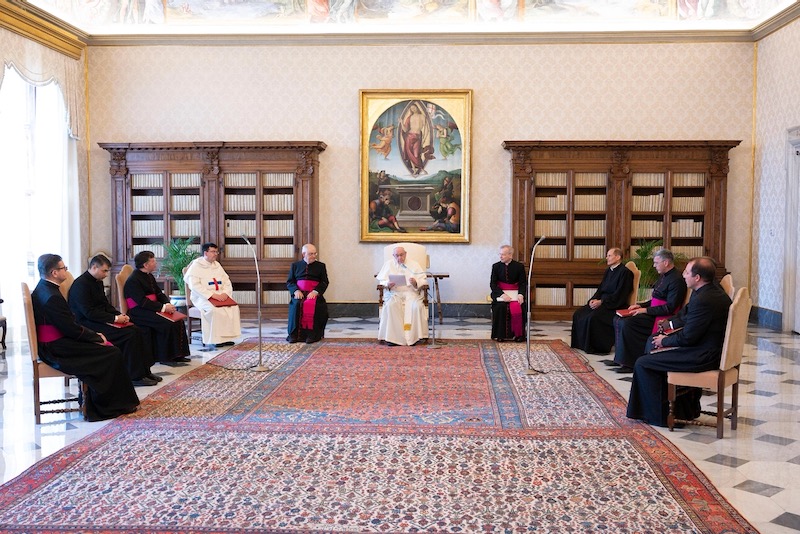Pope Francis has urged Catholics to “work seriously and actively” to counter indifference in the face of violations of human dignity.
He criticised a “culture of indifference that accompanies the culture of waste”, describing this as the view that “things that don't touch me don't interest me”.
While everyone works to cure a virus that affects everyone indistinctly, Catholics can also work to combat this indifference, he said at his weekly audience in Rome this morning.
Faith demands that we be “healed and converted”, he said.
Pope Francis said at his audience last week that he would be starting a series of talks on the social teachings of the Church in light of Covid-19. He said: “In the next few weeks, I invite you to tackle together the pressing questions that the pandemic has brought to the fore, social ills above all. And we will do it in the light of the Gospel, of the theological virtues and of the principles of the church’s social doctrine.”
This morning, beginning the series, he said: “The pandemic has highlighted how vulnerable and interconnected we are all. If we do not take care of each other, starting with the least, those who are most affected, including creation, we cannot heal the world.”
He said praised as “heroes” those people “who in recent months have been giving proof of human and Christian love for their neighbour, dedicating themselves to the sick even at the risk of their own health”.
However, the coronavirus is not the only disease to fight, he went on.
“The pandemic has brought wider social pathologies to light. One of these is the distorted vision of the person, a gaze that ignores his dignity and his relational character. Sometimes we look at others as objects, to be used and discarded. In reality, this type of gaze blinds and fosters an individualistic and aggressive culture of waste, which transforms the human being into a consumer good.”
God created humans not as objects, but as people loved and capable of loving, he said, criticising indifference and individualism, which militate against harmony.
“This renewed awareness of the dignity of every human being has serious social, economic and political implications. Looking at one's brother and all creation as a gift received from the love of the Father arouses a behaviour of attention, care and amazement.
“Thus the believer, contemplating his neighbour as a brother and not as a stranger, looks at him with compassion and empathy, not with contempt or enmity. And contemplating the world in the light of faith, he strives to develop, with the help of grace, his creativity and enthusiasm to resolve the tragedies of history.”



 Loading ...
Loading ...